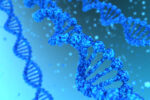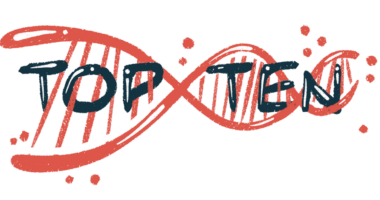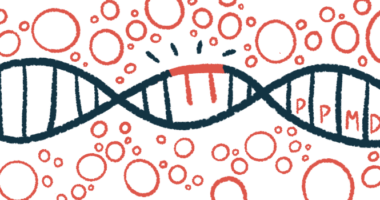36,000 Babies Screened for Muscular Dystrophy in PPMD Pilot Program

The Newborn Screening Pilot program run in New York by Parent Project Muscular Dystrophy (PMDD) is now complete, having screened more than 36,000 babies across the state for a muscular dystrophy over the last two years.
Significantly high levels of creatine kinase, an enzyme released by damaged muscle cells that can indicate a muscular dystrophy, were found in 34 newborns as of July 31, leading to more testing. Duchenne (DMD) or Becker MD was later confirmed in four of these babies.
A fifth child, an infant girl, was confirmed to be a carrier, meaning she would not develop the disease but carried a disease-causing mutation that could be passed to her children.
The pilot program was launched in October 2019 with a goal of preventing diagnostic delays, and ensuring timely resources and clinical care for children with a muscular dystrophy.
“Newborn screening is the most effective way to ensure that infants with Duchenne are diagnosed early, when therapies will likely be the most beneficial,” Pat Furlong, PPMD’s founding president and CEO, said in a press release. “It is the goal of PPMD and the Duchenne community to help eliminate the diagnostic delay, the two or more painful, expensive and uncertain years that many families experience.”
Families with babies identified through screening as having Duchenne, the most common muscular dystrophy, or another form of the disease are able to access genetic counseling and neuromuscular care, allowing an early start to treatment. The children are also eligible to participate in clinical trials and other studies of potential treatments and interventions.
“This is a hopeful time in Duchenne therapy development. We have a robust experimental therapy pipeline targeting multiple physiological pathways. Yet it is believed that therapeutic interventions may be optimally effective the earlier they can be offered,” Furlong said.
Screening data are now going through a final analysis, and PPMD is working to extend pilot programs nationwide.
“This pilot has been a huge group effort, and we’re incredibly grateful to all of those who have been willing to share their expertise, from the initial planning stages more than 5 years ago to the final analysis of the data, which is currently underway,” said Niki Armstrong, PPMD’s Newborn Screening Program Manager.
Pilot program families are being asked to provide feedback to improve the newborn screening process. According to PPMD, this pilot — guided by a broad steering committee of Duchenne community stakeholders — can be a model for widespread Duchenne newborn screening.
“Obviously no one wants their child to be diagnosed with Duchenne muscular dystrophy, but I am a firm believer that knowledge is power in our fight to end the progression of this deadly disorder,” Furlong said. “This pilot, in combination with all of the past and ongoing pilots, lays the groundwork for Duchenne newborn screening to be performed across the country.”
The pilot was funded and led by PPMD and industry partners that included PTC Therapeutics, Sarepta Therapeutics, PerkinElmer, Solid Biosciences, and Pfizer.
Its steering committee consisted of representatives from healthcare professional groups, expert clinicians, and other Duchenne stakeholders, including the American Academy of Pediatrics, the Centers for Disease Control and Prevention, the EveryLife Foundation for Rare Diseases, and the Genetic Alliance’s Expecting Health.
“We are grateful to all of our collaborators, including the NIH-funded Newborn Screening Translational Research Network (NBSTRN) and the New York State Department of Health, for all of their work on this pilot,” Furlong said.
Added Armstrong: “We’re deeply appreciative of our clinical sites at Northwell Health and New York Presbyterian Hospitals and the New York State Newborn Screening lab for their resourcefulness and resiliency, as they safely and successfully screened babies throughout a pandemic.”







